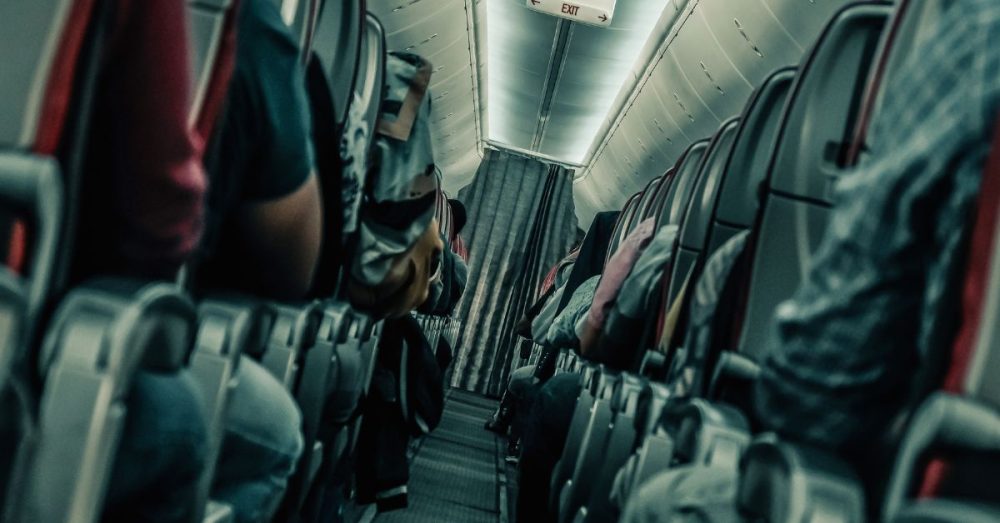Former U.S. Representative and 2020 Democratic presidential candidate Tulsi Gabbard is being monitored by the TSA under its Quiet Skies initiative, as previously reported by The Dallas Express.
Quiet Skies is a TSA program that aims to recognize individuals who could potentially threaten aviation security, essentially identifying them as domestic terrorists.
RedState reported that the whistleblowers who came forward about the potentially politically motivated target upon Gabbard are now encountering retaliatory probes of their own.
Tristan Leavitt, the president of Empower Oversight, informed Department of Homeland Security Inspector General Joseph Cuffari about possible retaliation against the whistleblowers and asked him to guarantee their protection.
Here is more of what RedState reported on this latest development:
Weird. Creepy. Those words are being tossed about quite a bit lately. But for all the Democrats’ flailing efforts to make the schoolyard taunts stick to the GOP presidential ticket, I think we’ve found an instance where their application is wholly warranted: “Quiet Skies.”
We first caught wind (pardon the pun) of the program’s recent (mis)application when a story broke over the weekend regarding the revelation that former Congresswoman and presidential candidate Tulsi Gabbard had landed on the TSA surveillance list as part of its Quiet Skies program, which is, purportedly, aimed at protecting American air travelers from domestic terrorists. Stranger still was the timing of Gabbard’s addition to that list.
Would the TSA have us believe that Tulsi Gabbard is a suspected domestic terrorist? Why? Well, it is as you might suspect:
According to (Executive Director of the Air Marshal National Council (AMNC) Sonya) LaBosco, Gabbard’s enrollment in Quiet Skies is likely politically motivated. Air Marshals were first assigned to Gabbard on Jul. 23, a day after she criticized Kamala Harris, Biden, and the National Security State in an interview with Laura Ingraham. FAMs were mobilized on Jul. 24 and assigned to their first flight with her on Jul. 25. Gabbard posted the interview on Twitter, as shared below.
As if that weren’t twisted enough, now we learn that the TSA whistleblowers who came forward with their concerns about this development are facing retaliatory investigations of their own.
On Wednesday, Tristan Leavitt, president of Empower Oversight, shared his firm’s follow-up letter to Department of Homeland Security Inspector General Joseph Cuffari, alerting the IG to the potential retaliation and requesting that he ensure the whistleblowers are properly protected.
@EMPOWR_us has confirmed from whistleblowers that @TulsiGabbard was under Quiet Skies surveillance on not just one, or two, or even three flights… She has had Air Marshals there to monitor her on EIGHT FLIGHTS since her July 23 interview with @IngrahamAngle.
Furthermore, TSA is mobilizing a retaliatory investigation into who made these protected whistleblower disclosures. I wrote to @DHSOIG this morning asking him to ensure these whistleblowers are protected.
Leavitt’s thread lays out the thrust of the correspondence directed to Cuffari. In sum, the letter, which may be viewed in full below, sets forth the following key points:
TSA deems the surveillance of Gabbard “Sensitive Security Information” (SSI) and has initiated an investigation into the “leak” of said information.
Protected whistleblower disclosures are not leaks, and the SSI designation does not trump the Whistleblower Protection Act.
This includes disclosures to media outlets – “The Whistleblower Protection Act protects from adverse personnel actions TSA employees who disclose information they reasonably believe constitutes a violation of any law, rule, or regulation; gross mismanagement; a gross waste of funds; an abuse of authority; or a substantial and specific danger to public health or safety—regardless of who they make their disclosure to, whether that be to your office, to Congress, to a professional association such as the Air Marshal National Council, or directly to the press.”


